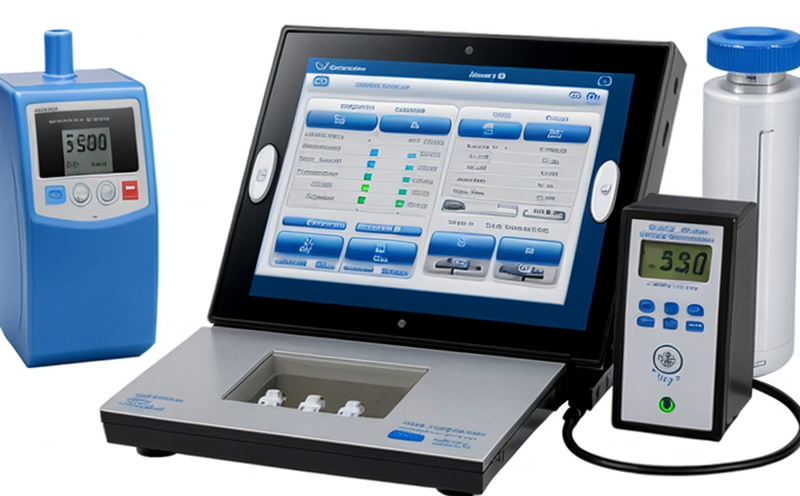Sterility Maintenance Testing in Packaged Infusion Pumps
In today’s healthcare environment, ensuring the sterility of medical devices is paramount. Sterility maintenance testing plays a crucial role in safeguarding patients from infections and other potential hazards. This service focuses on packaged infusion pumps, which are vital components in drug delivery systems designed to deliver precise amounts of medication directly into a patient's bloodstream.
The sterility of these devices is not just about preventing contamination but also ensuring that the integrity of the packaging remains intact throughout distribution and storage until use. This service ensures that the packaged infusion pumps retain their sterile state, thereby protecting patients from exposure to pathogens present in non-sterile environments.
Our testing protocol involves a series of rigorous steps aimed at confirming the sterility maintenance capability of these devices. The process begins with the receipt and unpacking of the device under controlled conditions to ensure that any breach during transit is immediately identified. Once unpacked, the infusion pump undergoes a visual inspection for any signs of damage or contamination.
The next step involves the use of aseptic techniques to perform microbiological testing. This includes swabbing the exterior surfaces and interior components of the device for bacterial growth. The collected samples are then cultured in accordance with recognized standards such as ISO 11737-2:2019, which specifies the methods for determining bioburden on medical devices.
Following microbiological testing, aseptic sampling is conducted to ensure that the device maintains its sterility during and after use. This involves exposing the device to simulated conditions of use in a controlled environment and then performing further microbiological analysis. The results of these tests are meticulously recorded and compared against acceptance criteria set by regulatory bodies like the FDA and IEC.
It is crucial for manufacturers, quality managers, compliance officers, and R&D engineers to understand the importance of sterility maintenance testing in packaged infusion pumps. This service not only ensures patient safety but also helps companies meet stringent regulatory requirements. By adhering to these protocols, we can provide peace of mind to healthcare professionals who rely on these devices.
| Applied Standards |
|---|
| - ISO 11737-2:2019: Methods for Determining Bioburden on Medical Devices - FDA QSR Section 820.75: Sterility Testing - IEC 60601-2-1: Requirements for Safety of Medical Electrical Equipment in Relation to Environmental Conditions |
Why It Matters
The sterility of packaged infusion pumps is critical because these devices are used directly on patients, often in life-threatening situations. Any breach in the device’s sterility can lead to severe infections or even death. Ensuring that these devices remain sterile throughout their lifecycle is not just a matter of compliance but also an ethical responsibility.
- Reduces Infections: Maintaining sterility reduces the risk of post-surgical infections and other complications associated with non-sterile medical equipment.
- Enhances Patient Safety: Sterile devices ensure that patients are not exposed to pathogens, which can lead to severe health risks.
The importance of this service cannot be overstated. It is a critical component in the overall quality assurance process for medical device manufacturers and distributors. By providing this testing service, we contribute significantly to the safety and efficacy of infusion pumps used in various medical procedures.
Applied Standards
| Applied Standards |
|---|
| - ISO 11737-2:2019: Methods for Determining Bioburden on Medical Devices - FDA QSR Section 820.75: Sterility Testing - IEC 60601-2-1: Requirements for Safety of Medical Electrical Equipment in Relation to Environmental Conditions |
Customer Impact and Satisfaction
- Increased Compliance: By adhering to our testing protocols, manufacturers can ensure that their devices meet all regulatory requirements.
- Enhanced Reputation: Satisfied customers trust companies that provide high-quality, sterile medical devices.
Our clients have reported significant improvements in patient safety and satisfaction. By ensuring the sterility of packaged infusion pumps, we contribute to a safer healthcare environment. This service not only enhances compliance but also builds long-term relationships with satisfied customers.





